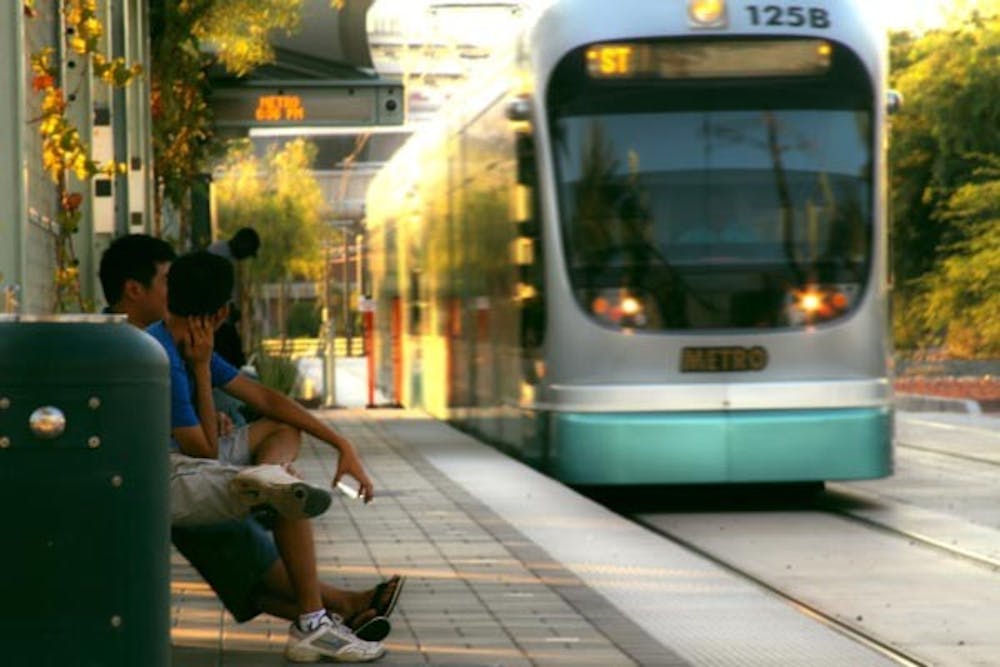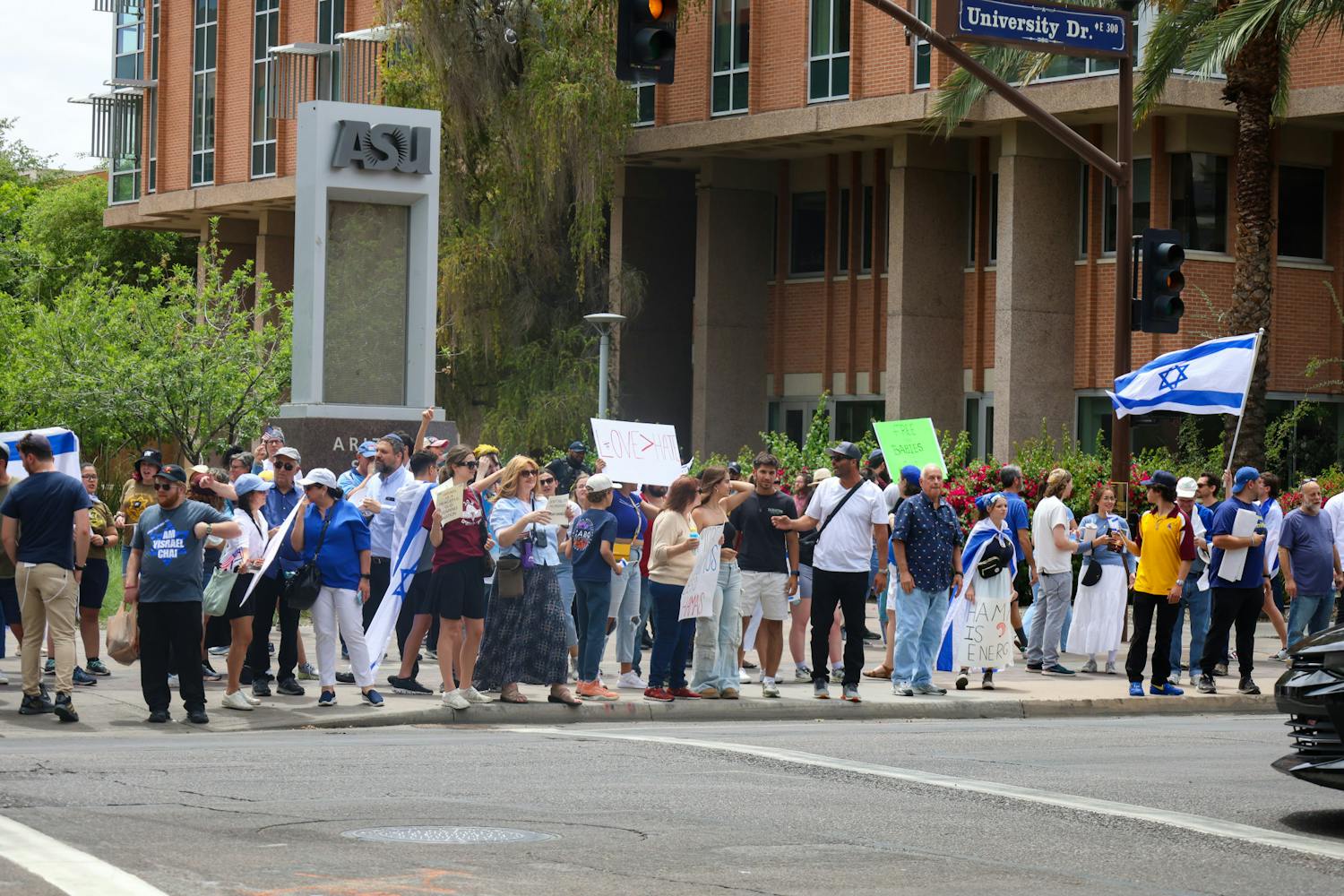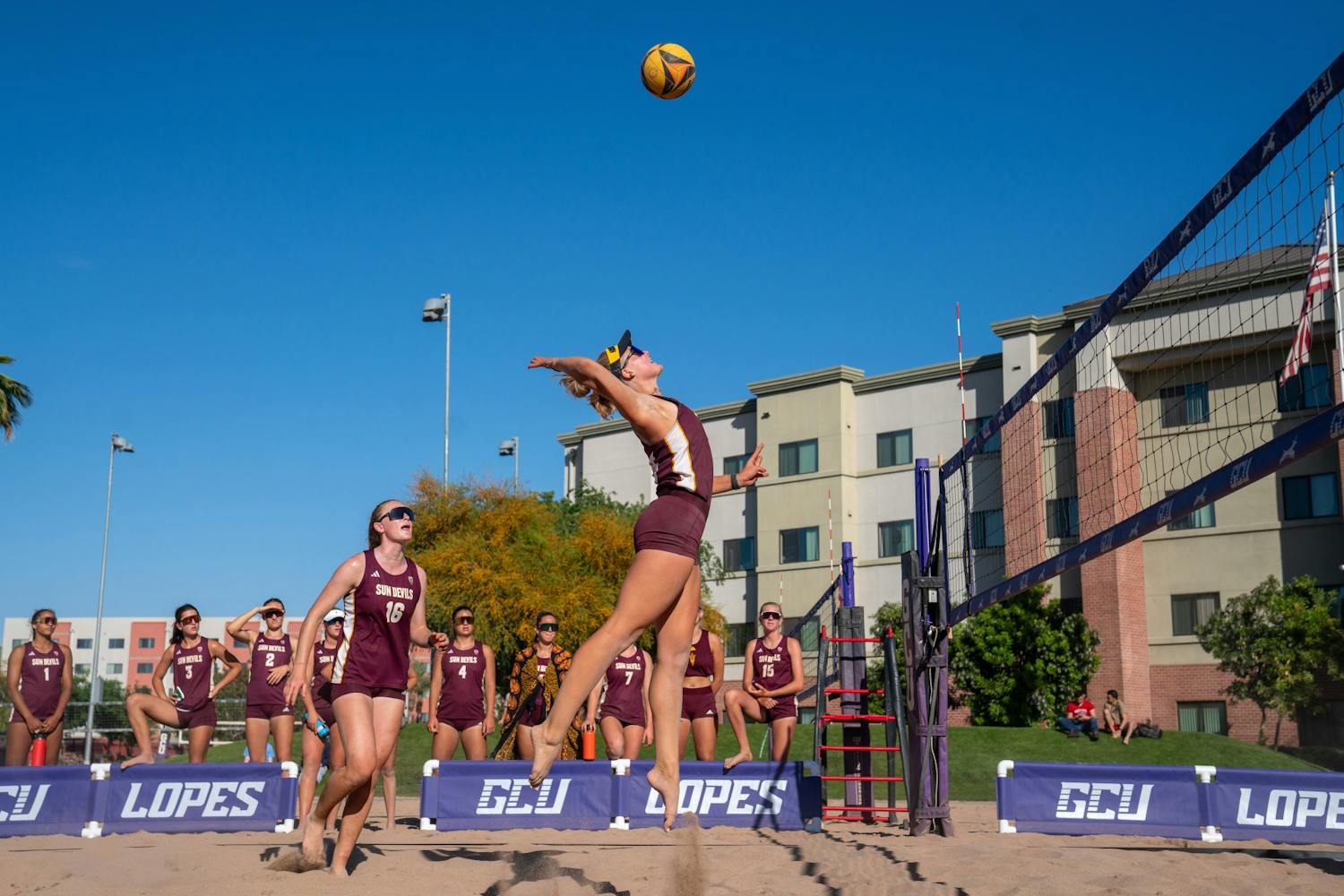Changes to the city’s public transportation and ASU’s Parking and Transit Services office could affect how students get to class this semester.
Valley Metro, the public transportation provider for the Phoenix area, reduced bus service around the Valley this summer, and PTS changed how it will sell public transportation passes to students.
Valley Metro reduced or eliminated 50 local and express routes this summer, including many around Tempe.
Metro Light Rail also reduced its frequency, so trains will arrive every 12 minutes instead of every 10 minutes during peak hours. Peak hours also decreased, now lasting from 7:30 a.m. to 6:30 p.m.
The changes stem from the state’s repeal of the Local Transportation Assistance Fund, which gave transit operations $22 million each year, said Valley Metro spokeswoman Susan Tierney. A decrease in revenue from local cities also played a factor, she said.
Valley Metro officials preferred a change in service as opposed to a fare increase, as they did not feel it was appropriate to increase fares two years in a row during a recession, Tierney said.
Tierney added that decreasing service was a more cost-effective fix, as increasing fares would be insufficient.
“Fares only make up 25 percent of the cost of operations, so even if we did increase fares, it wouldn’t make a huge difference in keeping service,” Tierney said.
Students will have to face these changes, which have already affected local residents like Ed Clarke.
Clarke, a retired pilot who was working as a driver for Mesa Public Schools, said he had to retire from his position after the bus route changes made it so he couldn’t get to his job.
“I can’t rely on Valley Metro,” Clarke said. “We can do better than to make cutbacks on a system that’s already broken.”
The city of Tempe made several strides to try to simplify public transportation in the area.
One Flash bus route, the Flash to University route, was eliminated and two others were re-routed because they provided the same service as the city’s Orbit bus routes.
ASU’s Parking and Transit Services also changed how it will sell the UPASS, the unlimited transit pass good on most bus routes and the light rail.
The pass used to be available to students at $80 for two semesters or $40 for each individual semester.
Students can no longer buy a pass for just the fall semester, and they will instead have to buy a two-semester pass for $80.
Students graduating before the spring semester will be able to get a partial refund, and those wanting to purchase a pass for just the spring semester will be able to buy one for $40 in the spring.
Shereen Shaw, spokeswoman for PTS, said the changes were made in response to students’ complaints that they were forgetting to renew the pass for the spring semester.
Feedback for this decision has been very positive, she said, with students saying it “makes sense.”
But some students who don’t live close to campus expressed complaints about having to cancel the pass prior to spring semester.
“It may be an unnecessary hassle for people who live far away from campus,” said nursing senior Siara Perry.
Reach the reporter at Michael.Reppenhagen@asu.edu





